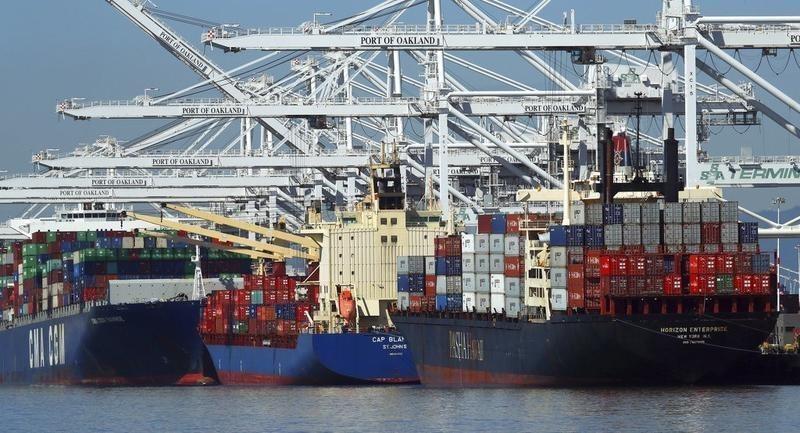
Bloomberg reports: "Officials in Beijing appear to be toning down their responses to Donald Trump's tariff threats, amid a slowing economy, a falling stock market and a weakening currency. Evidence of the shift continued Thursday when the Commerce Ministry held off detailing how it plans to retaliate against Trump's latest threat to impose tariffs on $200 billion worth of Chinese-made goods. Commerce Ministry spokesman Gao Feng said the government will take "necessary" steps to hit back, but when pressed he stopped short of repeating a previous pledge to respond with "quantitative" and "qualitative" measures and didn't outline specifics about which measures China would retaliate with."
- CNBC reports: "China's currency fell to a near 11-month low after the Trump administration's announcement of a new round of tariffs on $200 billion in goods. Strategists said China has not intentionally driven down the yuan, but it is not taking actions it often takes to stabilize it. The currency has lost 4 percent since mid-June, and a cheaper currency could be used as a weapon in the trade war by cheapening Chinese goods."
Bloomberg reports that Scott Minerd, chief investment officer for Guggenheim Partners, says a trade war with China may be "devastating" for the world's two largest economies, raising the risk of a deep U.S. recession as soon as next year. "The tail risk is getting fatter and fatter," Minerd, whose firm oversees about $305 billion, said in a Bloomberg Television interview. "So far the Chinese have shown no interest in backing down, but neither does Donald Trump." U.S. stocks rallied Thursday after China held off from immediately retaliating against the latest salvo from President Trump. China appeared to strike a conciliatory tone in reaction to Trump's newest escalation of the trade war between the countries. Higher tariffs from a trade dispute may fuel U.S. inflation, prompting the Federal Reserve to lift its benchmark rate to as much as 3.5 percent by the middle of next year, Minerd said. That would raise the cost of borrowing and put the brakes on growth, the money manager said. The rate hikes would probably occur as the stimulus from tax cuts wears off, adding further downward pressure on the economy.
- 2018-07-11 Trump readies new tariffs on China
- 2018-07-10 Tesla will build its first factory outside the US in China
- 2018-07-09 China attempts to get closer with Europe after Trump slaps new tariffs on Beijing
- 2018-07-08 Chinese risks to global stability are overblown
- 2018-07-06 China Says U.S. Has Begun 'Largest Trade War' In History, Retaliates With Tariffs
- 2018-07-05 China says U.S. 'opening fire' on world with tariffs, vows to respond
- 2018-07-04 Trump tariff salvo triggers anxiety for US chipmakers
- 2018-07-03 China's big bond experiment is about to go through a rough patch
- 2018-07-02 Trump Trade War Arrives in the Data as China Awaits Tariffs
- 2018-06-29 State Department risks China's ire with request for US Marines in Taiwan
- CNBC Surveillance fears cloud China's 'Digital Silk Road'
- The Wall Street Journal China's Effort to Control Debt Loses Steam
- Bloomberg U.S., China Say They Are Open to Talks Amid Escalating Trade War
- The Wall Street Journal This Time Around, Chinese Consumer Products Would Face Tariffs
- CNBC China reportedly looks to 'hit back in other ways' in response to latest US tariffs
- The Wall Street Journal China's Bonds Buck the Emerging-Market Trend
- CNBC 'The US is on track to lose this trade war,' economist Stephen Roach says
- CNN Smoking Air China pilots allegedly cause plane to drop 6,000 meters
- CNBC Coal is bucking trade war fears as China's demand surges
- The New York Times How Germany Won Freedom for the Widow of China's Most Famous Dissident
- Vox Trump just intensified his trade war with China
- NPR China Is Better Able To Withstand A Trade War Than In The Past
- Big Think China Is Better Able To Withstand A Trade War Than In The Past
- Brookings Unpacked: The US-China Trade War
- The New York Times Trump's Trade War With China Pierces the Heart of Michigan
- The National Interest China and the Cult of Xi
- The New York Times Trade War With China in Aisle 12
